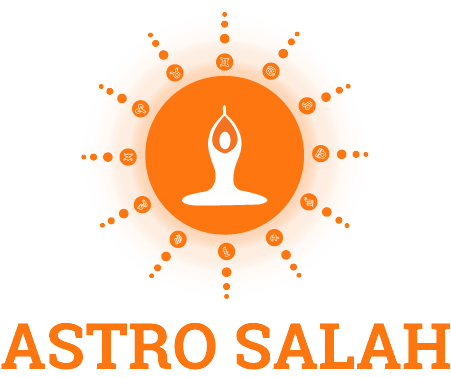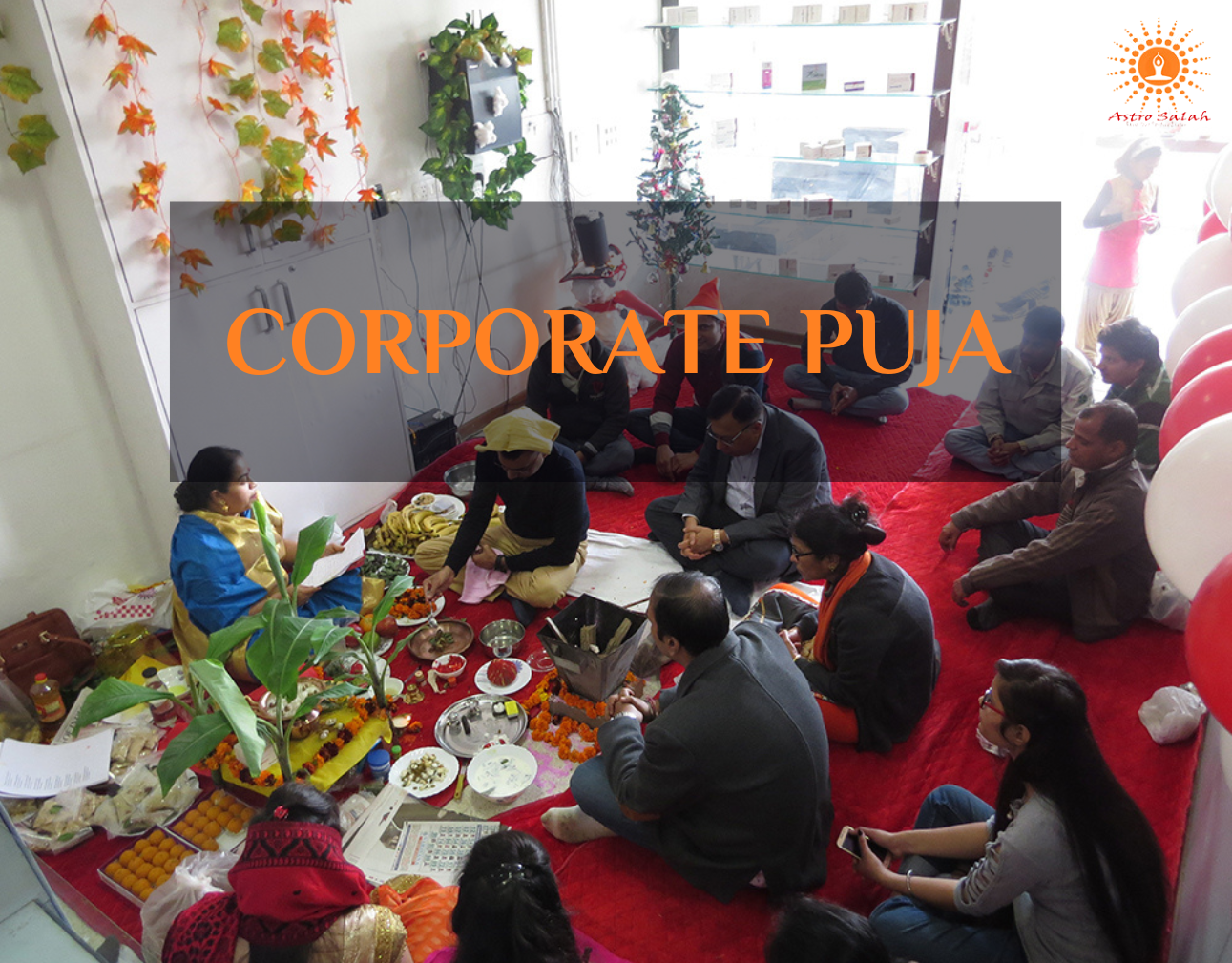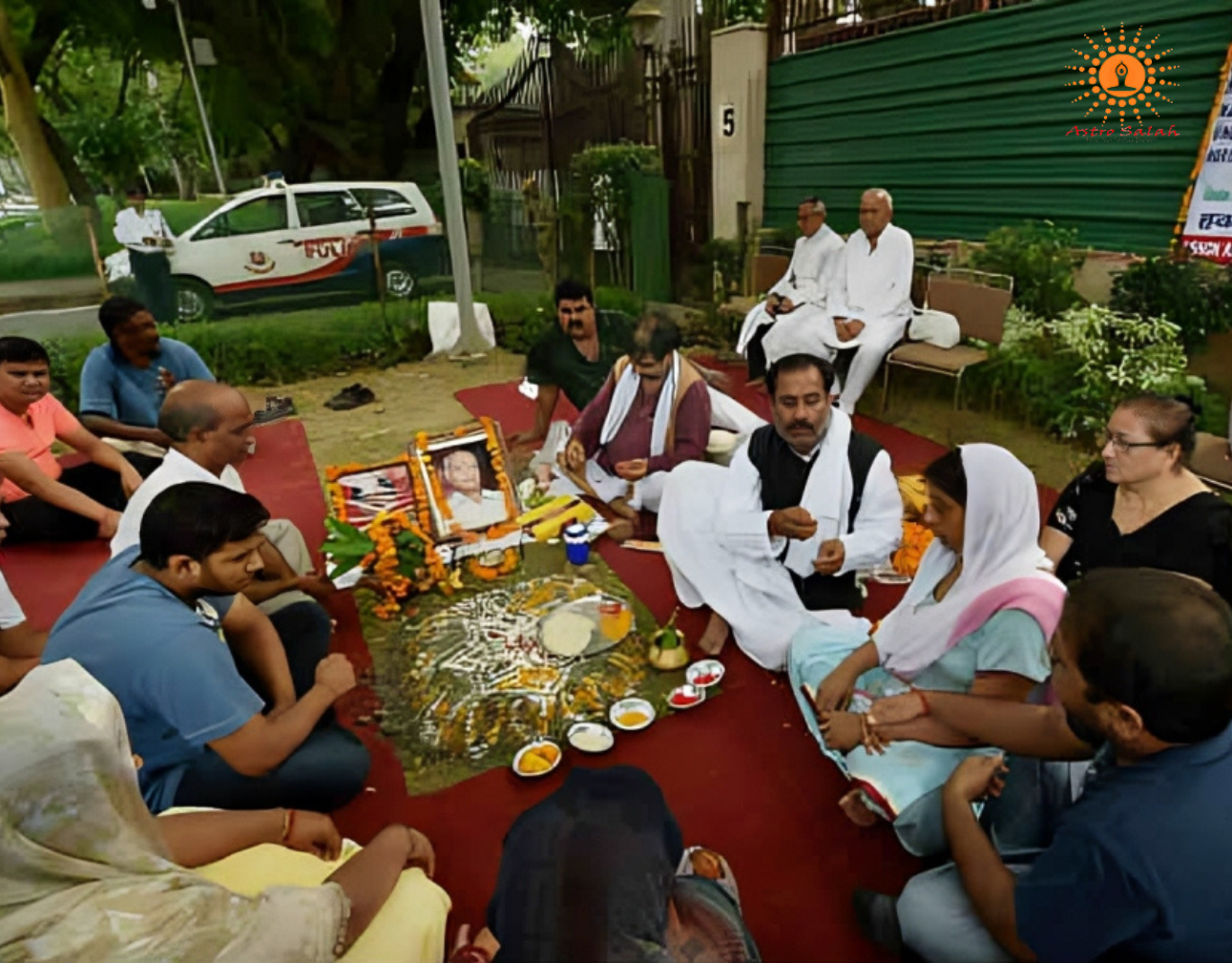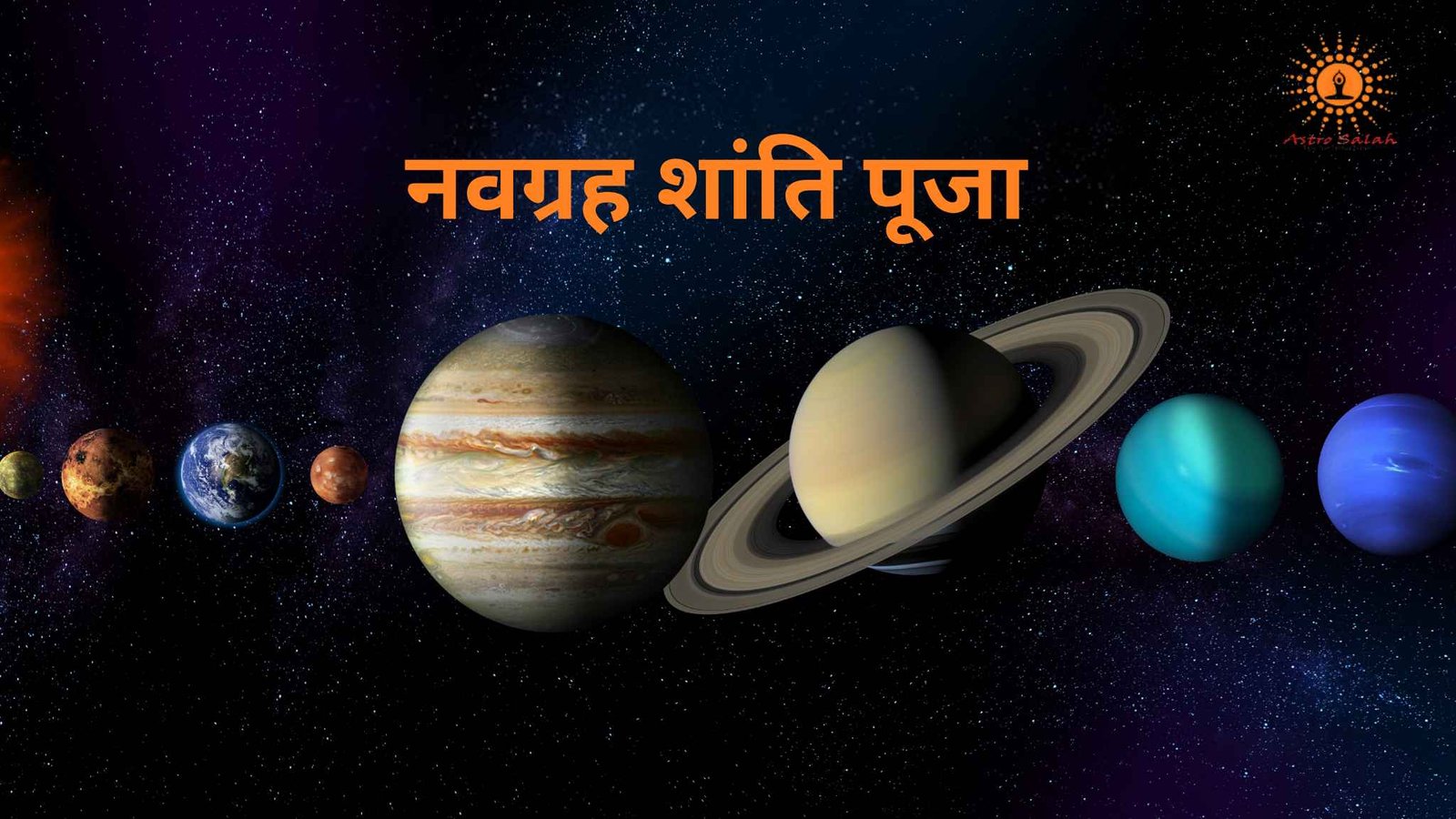
Vastu
Vastu, also known as Vastu Shastra, is an ancient Indian system of architecture and design that aims to harmonize buildings with nature and promote the well-being of the occupants. Following the principles of Vastu can create a positive and balanced environment. According to Vastu, various elements such as direction, layout, room placement, and materials used in construction can impact the energy flow within spaces. The principles of Vastu consider factors like the site’s location, the orientation of the building, the placement of rooms, and the arrangement of furniture and objects within the space. While Vastu Shastra is commonly associated with designing and constructing residential buildings, these principles are also applied in commercial real estate settings such as offices, retail spaces, and other commercial properties. People often consider Vastu guidelines to promote harmony, productivity, and workplace success when designing or setting up commercial spaces. Many businesses and individuals believe that aligning with Vastu principles can enhance productivity, financial success, and overall well-being.
Basic Principle of Vastu
Vastu Shastra’s basic principles aim to create a harmonious and balanced environment that promotes positivity, prosperity, and well-being. Here are some of the fundamental principles
- Site Selection: Vastu can be a tool for In Vastu, selecting an appropriate site is crucial, and practitioners consider factors such as the plot’s shape, slope, soil quality, and surrounding environment. Generally, they prefer square or rectangular plots with regular shapes.
- Orientation: The orientation of the building plays a significant role in Vastu. Aligning the building with the cardinal directions (North, East, South, West) is believed to bring positive energy.
- Room Placement:In Vastu, specific guidelines are followed for different rooms. For instance, practitioners often place the kitchen in the southeast corner, while they ideally locate the main bedroom in the southwest direction. They consider each room’s purpose and function, including the five elements and corresponding directions.
- Energy Flow:Vastu promotes the unimpeded flow of energy throughout the building. The arrangement of furniture, objects, and architectural features is considered to avoid blockages or obstructions. Clutter-free environments are encouraged.
- Space Planning: The efficient utilization of space is essential in Vastu. Balancing the placement of rooms and ensuring the free flow of energy throughout the building is emphasized. Design considerations include proper ventilation, natural light, and open spaces.
- Elements & Materials: Vastu recommends the use of natural and harmonious materials. Materials like wood, stone, and earthy colors are preferred. Additionally, incorporating water, fire, air, and space elements in fountains, fireplaces, ventilation systems, and open spaces is believed to enhance positive energy.
5 Elements of Vastu
Vastu Shastra is based on the concept of five elements, referred to as the Panchabhutas. These elements are:
- Earth (Prithvi):Represents stability, strength, and nourishment. It is associated with the southwest direction and is often related to the foundation and stability of a building.
- Water (Jal):Represents cleansing, purity, and vitality. Proper water placements are significant in Vastu, such as having a water source or water bodies in the northeast direction.
- Fire (Agni):Represents energy, transformation, and warmth. The ideal placement of fire elements, such as fireplaces or stoves, is often in the southeast direction.
- Air (Vayu):Represents movement, freshness, and ventilation. The placement of windows and ventilation systems to allow the free flow of air is considered necessary in Vastu.
- Space (Akasha):Represents openness, expansiveness, and cosmic energy. The concept of space includes the building’s overall layout, dimensions, and structure.
These elements influence the energy flow and balance in a space, and adhering to their proper placement and arrangement is considered necessary in Vastu Shastra.
Benefits of Vastu
Following Vastu Shastra principles can bring several benefits to individuals and spaces. Some of the claimed benefits of Vastu include:
Positive Energy: Vastu aims to create a harmonious and balanced environment that promotes positive energy flow and enhances the overall well-being and happiness of the occupants.
Financial Prosperity: Vastu is often associated with attracting financial success and abundance. Proper placement of certain elements, such as the main entrance or the location of the financial area, is believed to stimulate wealth creation and prosperity.
Improved Relationships: Vastu can influence the energy flow within a space, and aligning with the principles can help improve relationships among family members, friends, and colleagues. A harmonious and balanced environment promotes better communication and understanding.
Health and Well-being: Vastu principles incorporate elements like proper ventilation, natural light, and open spaces. It promotes a healthy and conducive living or working environment.
Enhanced Productivity: Vastu principles can be applied to workspaces to create a positive and energizing environment. This improves productivity, creativity, and focus among individuals.
Protection from Negativity: Vastu uses specific materials, colors, and elements to protect against negative vibrations or energies. It shields individuals and spaces from negative influences and promotes a sense of security.
Who should go for Vastu
People or organizations who believe in the principles of Vastu Shastra follow it to create living or working spaces that they perceive as harmonious and balanced. While it is a matter of personal choice, here are some instances where individuals or organizations may consider Vastu:
Residential properties: Homeowners looking to build or renovate their homes and want to incorporate cultural beliefs and traditional practices into their living spaces may opt for Vastu. They may seek to create a positive and balanced environment for themselves and their families.
Commercial real estate: Business owners, entrepreneurs, or organizations looking to set up offices, retail spaces, or other commercial establishments may consider Vastu principles. They may believe aligning with Vastu can create a conducive environment that enhances productivity, financial success, and overall well-being.
Religious or spiritual establishments: Temples, ashrams, meditation centres, or other spiritual organizations may incorporate Vastu principles in their construction and layout. They may aim to create a sacred and energetically balanced space for worship and spiritual activities.
Remedies for Vastu
Vastu Shastra offers various remedies or corrections to mitigate any imbalances or negative energies in a space. Here are some common remedies in Vastu:
- Use of Colors: The atmosphere of different rooms can be influenced by choosing colors, as each color holds its unique energies. For example, painting the walls in soothing colors like light blue or green in the northeast direction can promote calmness and positivity.
- Placement of Plants: Indoor plants are considered auspicious in Vastu as they bring positive energy and help purify the air. Positioning money plants, bamboo, or peace lilies in suitable spots can enhance vitality and foster harmony.
- Mirrors and Reflective Surfaces:Strategically placing mirrors in the house can help expand spaces or redirect energies. Mirrors can rectify Vastu defects or enhance positive energy flow in certain areas.
- Feng Shui Elements:Incorporating elements of Feng Shui, another ancient practice, can be considered in Vastu remedies. These include wind chimes, aquariums, or plants like lucky bamboo, which attract positive energy and prosperity.
- Use of Crystals:Crystals have healing properties. They can be placed in specific locations to enhance positive energy flow or counteract negative energies. Clear quartz, amethyst, and rose quartz are popular in Vastu practices.
Remedies for Residential properties in Vastu
Here are some common Vastu remedies for residential properties:
- Main Entrance: Ensure the house’s main entrance is well-maintained, clean, and clutter-free. It should be well-lit and inviting. Placing a threshold or a doormat at the entrance is believed to prevent the outflow of positive energy.
- Kitchen: The kitchen is associated with prosperity in Vastu. Having the kitchen in the southeast direction of the house is advised. Keep the cooking stove in the southeast corner and ensure it is not directly in line with the main entrance or opposite the bedroom. Maintain cleanliness and proper ventilation in the kitchen.
- Bedroom: The main bedroom is essential for rest and rejuvenation. It should be in the southwest direction of the house. Place the bed so the head is towards the south or east while sleeping.
- Bathroom and Toilet: Bathrooms and toilets should ideally be located in the northwest or southeast corners of the house. Ensure proper sanitation, cleanliness, and good ventilation in these areas.
- Mirrors and Reflective Surfaces: Placing mirrors strategically within the house can help reflect and enhance positive energies. Mirrors can also correct Vastu defects, such as reflecting an obstructed view or blocked spaces.
- Use of Colors: Colors can influence the energy flow within a space. Soothing and pleasant colors in the home are advisable. Each room may have its recommended color schemes based on Vastu principles.
- Balancing Elements: Balancing the five elements (earth, water, fire, air, and space) within the house is considered necessary in Vastu. You can accomplish this by including elements like indoor plants to represent the earth, adding water features for water, ensuring proper lighting and using candles to symbolize fire, strategically placing windows to facilitate air circulation, and maintaining a clutter-free environment for space
It is essential to consult with a recognized Vastu expert or professional for personalized remedies and advice specific to your residential property.
Remedies for Commercial Real Estate in Vastu
Here are some common Vastu remedies for commercial real estate:
- Main Entrance: The main entrance of the commercial building should be well-
maintained, clean, and clutter-free. It should have proper lighting and be easily visible. Placing a threshold or a doormat at the entrance is believed to prevent the outflow of positive energy. - Reception Area: The reception area is often visitors’ first point of contact. It is advisable to have the reception area near the entrance, preferably in the northeast or east direction. Ensure it is well-lit, clean, and welcoming, with proper seating arrangements.
- Office Placement: The location of different offices or departments within the commercial space is essential. For example, the administrative or the CEO’s office should be located in the southwest direction, while the marketing or sales department can be in the northwest direction. Each office should have proper lighting, ventilation, and comfortable seating arrangements.
- Conference Room: The conference room is where meaningful business discussions and meetings occur. It is recommended that the conference room be in the northeast direction of the building. Ensure it is spacious, well-lit, and rectangular or square if possible.
- Proper Ventilation: Ensure proper ventilation throughout the commercial space. Good air circulation promotes positive energy flow and productivity. Incorporate windows or use air conditioning systems that allow fresh air to circulate.
- Employee Workstations: Employees should provide a comfortable and productive environment. Having workstations facing the east or north is beneficial and can enhance focus and productivity.
It is essential to consult with a recognized Vastu expert or professional for personalized remedies and advice specific to your commercial real estate.
Remedies for Religious or Spiritual establishments in Vastu
Vastu principles are important to create a positive and sacred environment regarding religious or spiritual establishments. Here are some common Vastu remedies for such establishments:
- Main Entrance: The main entrance of religious or spiritual establishments should be grand, inviting, and well-maintained. It should face east or northeast to attract positive energy. Decorate the entrance with auspicious symbols or religious motifs.
- Prayer or Meditation Hall: rayer halls or meditation spaces should be clean, peaceful, and well-ventilated. It is advisable to have the prayer hall in the northeast or east direction. Keep the space clutter-free and provide comfortable seating arrangements.
- Placement of Deities: The altar or sanctum where deities are placed should face northeast. The statues or idols should also face east or west so worshippers can see clearly. Ensure that the deities are placed at an appropriate height and kept clean.
- Pooja Room or Sacred Area: Create a designated pooja room or sacred area for devotees to perform religious rituals or ceremonies. This space should be in the northeast or east direction. Please keep it clean, well-organized, and free from unwanted items or clutter.
- Lighting: Lighting plays a significant role in religious establishments. Natural light is considered auspicious, so maximize the use of windows or skylights to allow sunlight to enter the space. Artificial lighting should be soft and create a serene ambiance.
- Water Features: Water features like fountains or small ponds can be placed in the northeast direction, symbolizing purification and positive energy. Ensure the water is clean and flowing.
Every religious establishment may have unique beliefs and practices, so it is essential to consult with the respective religious leaders or experts who can provide guidance specific to the traditions and customs followed. Working with a recognized Vastu expert or professional who can understand the particular requirements and provide personalized remedies based on Vastu principles is advisable.
Why is Vastu Shastra good for a house
Many people find Vastu Shastra suitable for their homes because it strives to create a living environment that is harmonious and balanced, potentially benefiting the well-being of the residents. Here are some reasons why Vastu Shastra is considered beneficial for a house:
- Positive Energy: Vastu Shastra focuses on optimizing positive energy flow, also known as “prana” or life force energy, within a house. Aligning the orientation, layout, and placement of rooms aims to enhance positive energy flow throughout the house and create a vibrant and uplifting atmosphere that promotes overall well-being.
- Health and Well-being: Vastu principles promote the use of natural light, proper
ventilation, and adequate space planning, which have a positive impact on physical and mental health. According to Vastu guidelines, a well-designed house may offer a conducive environment for relaxation, rejuvenation, and overall health. - Harmony and Balance: Vastu Shastra emphasizes the balance of the five elements (earth, water, fire, air, and space) within a house. When harmoniously balanced, these elements promote tranquillity, harmony, and a sense of balance among the occupants.
- Prosperity and Financial Well-being: According to Vastu, a house designed according to
its principles can support and attract positive energy, leading to financial prosperity. Proper placement of the house’s main entrance, bedroom, and financial area stimulates wealth creation and financial well-being. - Improved Relationships: Vastu considers the flow of energy within a house and how it may influence interpersonal relationships. A well-designed house based on Vastu principles may help improve communication, harmony, and understanding among family members, fostering strong and positive relationships.
- Peaceful and Calming Environment: Vastu Shastra emphasizes the importance of a peaceful and calming environment in a house. It creates a serene atmosphere that
supports relaxation and inner peace by incorporating proper ventilation, natural
materials, and appropriate room placements.
What happens if Vastu shastra is not correct?
According to believers of Vastu Shastra, if there are significant Vastu defects in a house, they are believed to have specific potential adverse effects. Here are some common beliefs regarding the consequences of incorrect Vastu:
- Health Issues: Incorrect Vastu is often associated with potential health problems. Living in a house with significant Vastu defects can lead to physical and mental health issues.
- Imbalance and Disharmony: Incorrect Vastu results in an imbalance of the five elements (earth, water, fire, air, and space) within the house. This imbalance disrupts positive energy flow, leading to disharmony and a general feeling of unease among the occupants.
- Relationship Struggles: Incorrect Vastu can impact personal relationships. Negative energy resulting from Vastu defects may lead to increased conflicts, misunderstandings, and strain on interpersonal relationships within the household.
- Financial Obstacles: Incorrect Vastu obstructs financial growth and prosperity. Negative energy flows resulting from Vastu defects may hinder financial opportunities, progress, and wealth accumulation.
- Lack of Mental Peace: Incorrect Vastu is often associated with a lack of mental peace and overall well-being. The disruption of positive energy flow contributes to feelings of stress, restlessness, and anxiety among the occupants.
What are the symptoms of Vastu-shastra Doshas?
In Vastu Shastra, doshas are imbalances or defects in the energy flow within a space. Here are some commonly mentioned symptoms or signs that are considered indicators of Vastu doshas:
- Health Issues: Vastu doshas have an impact on physical health. Some common
symptoms include frequent illnesses, chronic health conditions, lack of energy, fatigue, or difficulty recovering from diseases. - Financial Problems: Imbalances in Vastu are associated with financial difficulties or obstacles. Individuals may experience financial losses, business failures, unexpected expense burdens, or struggles attracting wealth and prosperity.
- Relationship Struggles: Vastu doshas can affect relationships among family members or occupants. Symptoms of relationship struggles may include frequent conflicts, misunderstandings, lack of harmony, strained communication, or lack of emotional bonding.
- Sleep Disturbances: People living in spaces with Vastu doshas may experience
disrupted or restless sleep, manifesting as insomnia, frequent nightmares, or difficulty experiencing deep and rejuvenating sleep. - Lack of Concentration and Productivity: Imbalances in Vastu energies can impact concentration, focus, and productivity. Individuals may experience mental sluggishness,or need help completing tasks efficiently.
- Overall Sense of Discomfort: Vastu doshas can create a general feeling of unease or discomfort within a space. Individuals may experience restlessness, anxiety, a sense of negativity, or a lack of overall well-being when spending time in areas affected by doshas.
FAQs about Vastu
Here are some frequently asked questions about Vastu:
- What is Vastu Shastra?
Vastu Shastra is an ancient Indian science of architecture and construction that focuses on creating harmonious living and working spaces by aligning them with natural elements and cosmic energies. - Can Vastu Shastra be applied to all types of building?
Vastu Shastra principles find application in various buildings, ranging from residentialand commercial to religious structures. - Can Vastu Shastra improve financial stability?
Aligning the building with auspicious directions and elements can positively influence financial stability and prosperity. - Can Vastu Shastra be applied to existing building?
Yes, Vastu principles can be applied to existing buildings by rearranging furniture, using color therapy, and incorporating Vastu-friendly décor. - What are some common Vastu remedies for resolving imbalances?
Install mirrors to redirect energy flow, use specific colors to balance elements, add plants for purification, and use gemstones or yantras to energize spaces.













